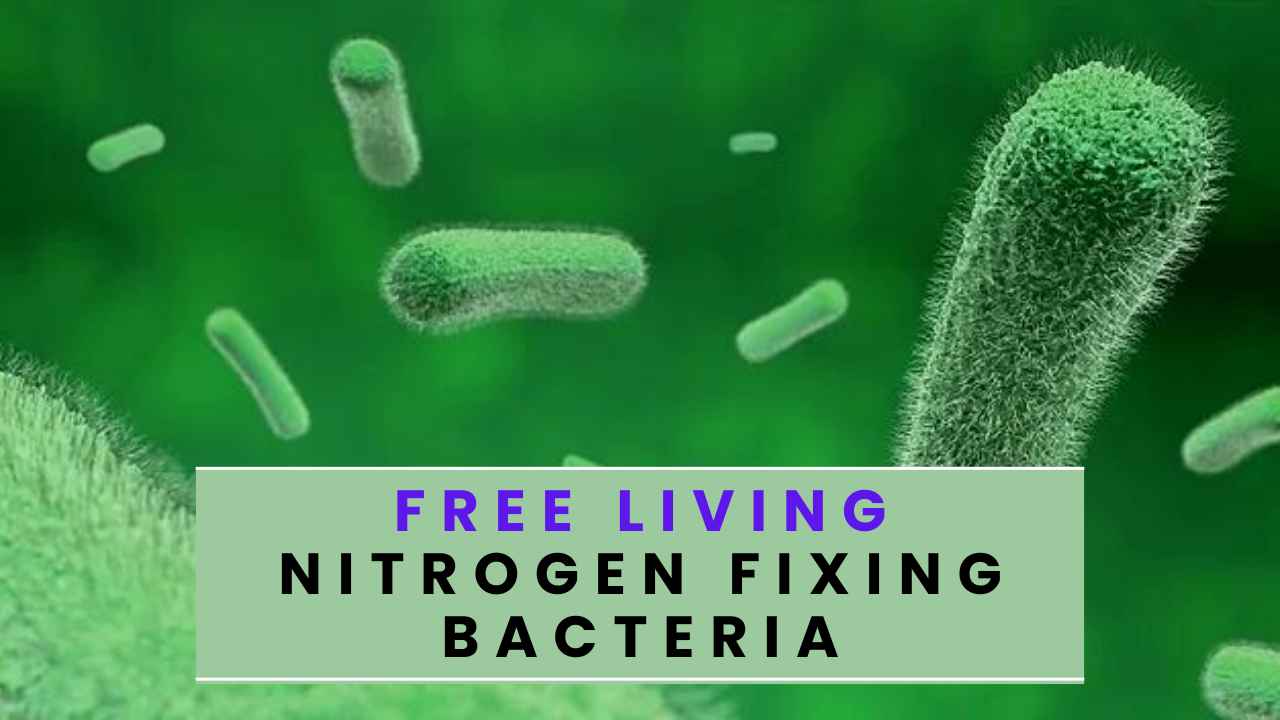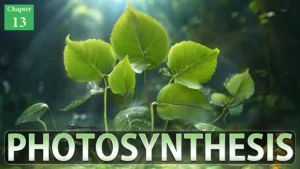Table of Contents
Free Living Nitrogen Fixing Bacteria
In this article we will discuss about free living nitrogen fixing bacteria. After reading this essay you will learn about: 1. Definition of Free Living Nitrogen Fixing Bacteria, The Role of Free Living Nitrogen Fixing Bacteria in Nitrogen Cycle and Example of Free Living Nitrogen Fixing Bacteria.
Definition of Free Living Nitrogen Fixing Bacteria
Free living nitrogen fixing bacteria are microorganisms which can convert atmospheric nitrogen (N2) into a ammonia that plants can use, a process called as nitrogen fixation. These bacteria are not attached to a host and can exist freely in soil, water, or air. Nitrogen-Fixing Bacteria are found in a wide range of environments, including soils, water bodies, and the atmosphere. It play an important role in nitrogen fixation. These bacteria can fix atmospheric nitrogen in the absence of a host and contribute to the nitrogen balance in the soil, which is crucial for soil fertility.
The Role of Nitrogen-Fixing Bacteria in Nitrogen Cycle
Free living nitrogen-fixing bacteria play a vital role in the nitrogen cycle because they’re responsible for converting nitrogen from the atmosphere (N2) into a ammonia that plants can use, a process known as nitrogen fixation. Nitrogen is a vital nutrient for plant development and growth but nitrogen (N2) cannot be utilized directly by plants. The nitrogen cycle is the continuous thing by which nitrogen keeps moving through the environment and is transformed into various forms.
They live in the soil play an essential role in the nitrogen cycle by converting earth’s atmosphere nitrogen into ammonia (NH3), which then converted into nitrates (NO3-) or ammonium ions (NH4+) through other microbes. These ammonia forms can be absorbed by plants and used for development and growth. Nitrogen-fixing bacteria can fix nitrogen because nitrogenase enzymes are present in their cells.
However apart from nitrogen fixation, free-living nitrogen-fixing bacteria contribute to denitrification, that is the process by which nitrates are converted back into nitrogen (N2). This process helps to control the amount of nitrogen present in the soil, helping to ensure that adequate amounts are available for plant growth.
Example of Free Living Nitrogen Fixing Bacteria
There are several types of nitrogen fixing bacteria that are free living and play a crucial role in the nitrogen cycle. The following are some of the most common types of nitrogen fixing bacteria:
- Azotobacter spp. They found in soil and water. They can fix atmospheric nitrogen in the absence of a host organism and are commonly used as biofertilizers to improve crop yields and soil fertility.
- Beijernickia spp. They free living nitrogen-fixing aerobic microbe. They fix atmospheric nitrogen to soil, that can assist in better plant growth while also reducing the need for chemical fertilisers.
- Rhodospirillum spp. They are photosynthetic bacteria that can fix nitrogen when exposed to light. They can be found in a wide range of environments, such as both freshwater and saltwater, and thus are frequently used as biofertilizers to boost soil fertility.
- Nostoc spp. They are a genus of cyanobacteria which can fix nitrogen in the presence or absence of light. They are common in aquatic and soil environments and are recognised for their own ability to produce and accumulate nitrogen, making them important nitrogen cycle contributors.
- Anabaena spp. Another genus of cyanobacteria capable of nitrogen fixation is Anabaena. They live in freshwater and are frequently found attached to plant roots, where they form symbiotic relationships with their host plant, as well as fix nitrogen as free living.
- Klebsiella spp. They are a genus of bacteria that is commonly found in the soil, water, and animal guts. These bacteria are able to fix nitrogen and therefore contribute to soil nitrogen balance.
- Herbaspirillum spp. They are a genus of bacteria that are associated with plant roots and are capable of nitrogen fixation. These bacteria form a symbiotic relationship with the plant. As well as free living, they can fix nitrogen. exchanging nitrogen for carbohydrates.
These bacteria contribute significantly to the nitrogen cycle by converting nitrogen from the atmosphere into a form that plants can use. This process promotes plant development and growth while also retaining soil fertility.
Conclusion
Finally, free living nitrogen fixing bacteria are a type of microorganism that plays an important role in nitrogen fixation as well as soil fertility. Because of their ability to convert nitrogen from the atmosphere into a ammonia that plants can use, they are a valuable resource in agriculture, especially in self sustaining agriculture and food production.
Read More:



![[PPT] The living world Class 11 Notes](https://rajusbiology.com/wp-content/uploads/2024/06/PPT-The-living-world-Class-11-Notes-300x169.webp)
